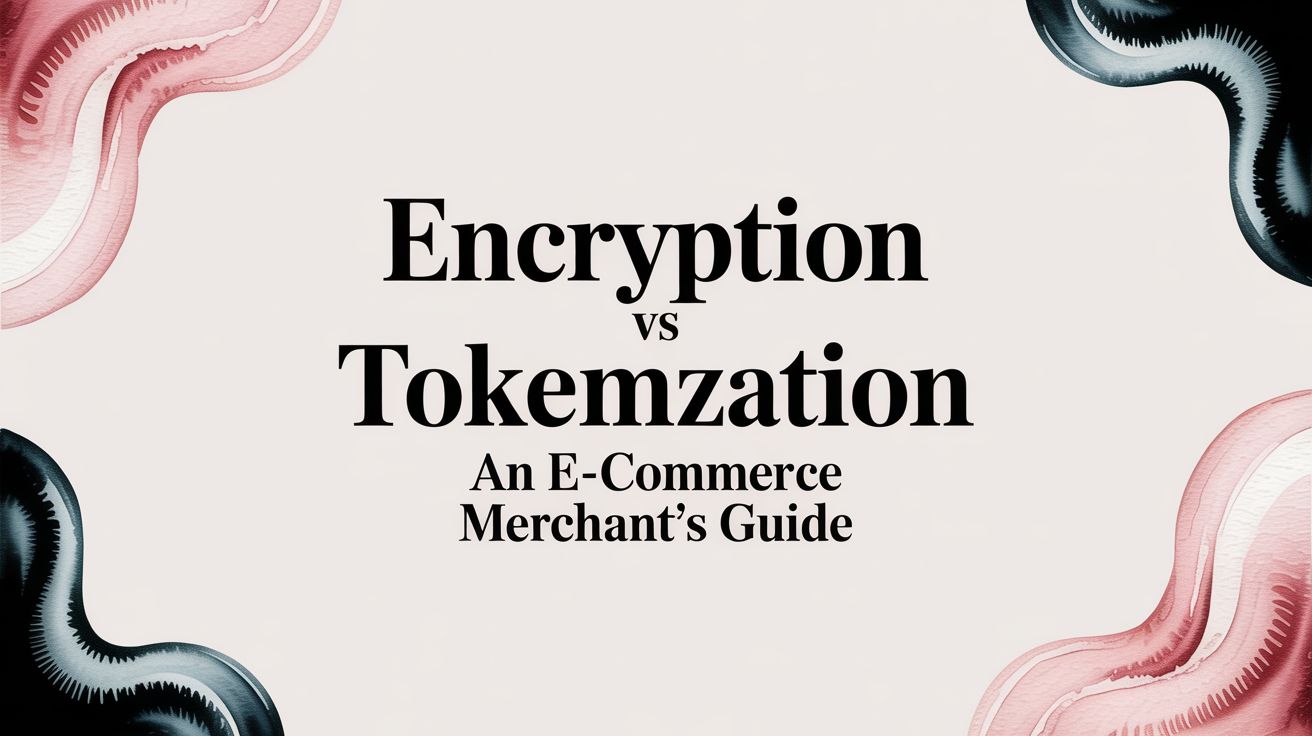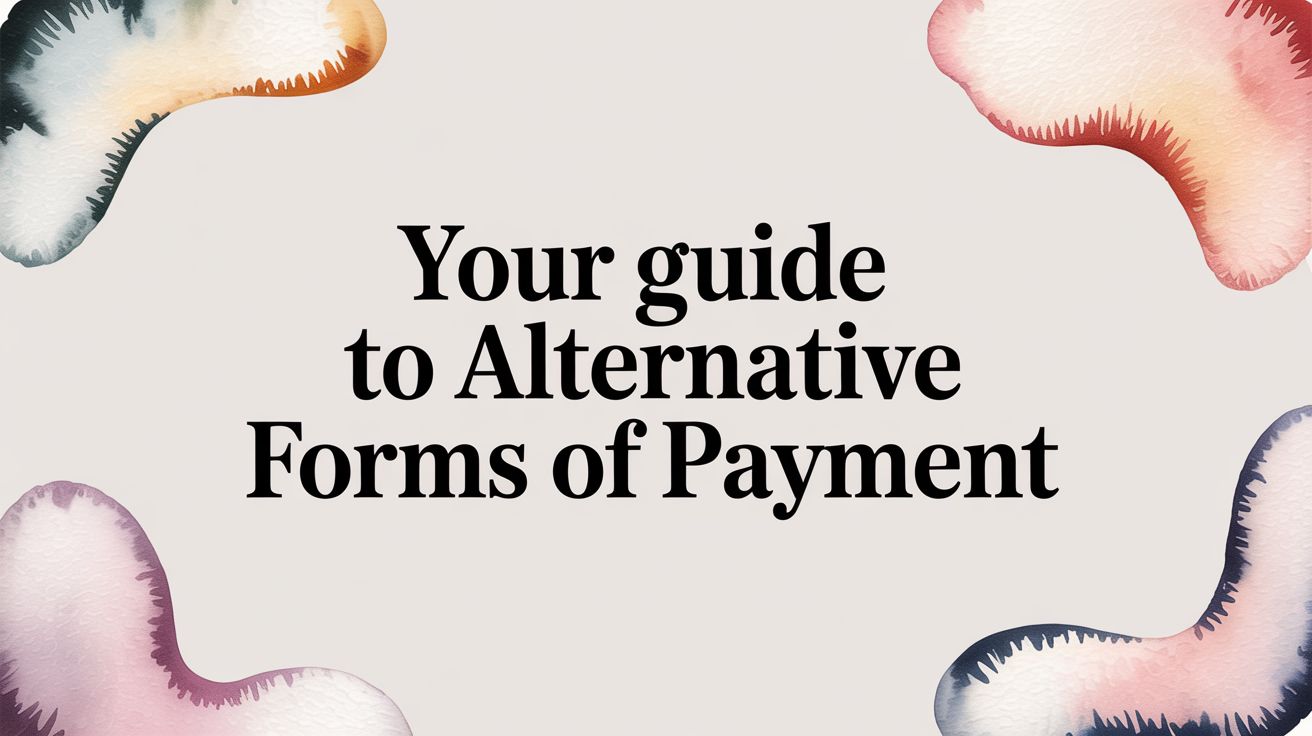
Businesses using online transactions continuously encounter a persistent challenge that disrupts revenue and operational efficiency – chargebacks. These unexpected disputes, initiated by customers questioning transaction legitimacy, pose a significant threat to financial stability and customer trust.
In this article, we get into the complexities of Braintree chargebacks, exploring the process from initiation to resolution.
As we navigate Braintree chargeback protection, explore the role of API integration, and uncover essential insights, businesses will gain a comprehensive understanding of proactive measures and strategies to optimize revenue recovery.
Join us on this exploration as we address the challenges, explore the solutions, and redefine the approach to managing and mitigating chargebacks in the ever-evolving landscape of online payments.
What Is Braintree Chargeback Process?
The Braintree chargeback process is a critical aspect that businesses must comprehend efficiently. It starts with the customer's initiation of a chargeback, signaling a series of interactions between financial institutes like Bank and the merchant.
Understanding this process is pivotal for businesses using Braintree to respond effectively, minimize potential losses, and maintain the integrity of their financial transactions.
We have thoroughly explained the Braintree chargeback process to equip merchants with the essential knowledge and tools needed to grasp this aspect of the payment ecosystem.
1. Initiation
The Braintree chargeback process begins when a customer files a dispute with their bank, alleging a transaction's fraud or unauthorized nature. After this, the issuing bank notifies Braintree, initiating communication with the merchant. Braintree promptly informs the merchant about the chargeback, detailing the transaction in question.
2. Resolution
Merchants face a crucial decision upon notification, where they must choose to accept or dispute the chargeback within a specified timeframe. In case of a dispute, merchants compile evidence supporting the transaction's legitimacy, submitting it to Braintree for review.
Braintree, within the provide timeframe, evaluates the evidence presented by both the merchant and the issuing bank, leading to a final decision.
What After Bank Need More Evidence?
The chargeback process may involve additional steps, such as a retrieval request, where the issuing bank seeks more information before reaching a decision. If the chargeback is upheld, merchants and the issuing bank may enter pre-arbitration to attempt a settlement.
Should pre-arbitration fail, the case proceeds to arbitration, where a neutral third party makes the final decision.
BrainTree ChargeBack Time Frame
Merchants operate within specific timeframes, typically 10-15 business days, to respond to chargebacks. The presentation of strong and relevant evidence is essential for successfully disputing chargebacks. Ultimately, merchants bear the responsibility for both preventing chargebacks and effectively responding to them.
Braintree Chargeback Threshold: Platform Limitations
While Braintree doesn't publicly disclose a specific chargeback threshold, merchants utilizing its platform operate within the guidelines set by major card networks such as Visa, Mastercard or Discover.
These networks implement chargeback monitoring programs with general thresholds, typically considering a chargeback ratio exceeding 1% in a calendar month as high. Noteworthy programs like Mastercard's Excessive Chargeback Program or Visa's Chargeback Management Program may be triggered if a merchant's ratio surpasses the threshold.
Entering these monitoring programs can result in extra scrutiny, requirements for prevention measures, and potential fines in form of extra fees. Braintree plays a crucial role in this process by notifying merchants about chargebacks and associated risks, offering dispute assistance tools, and aiding in compliance with network rules.
Infact, Braintree start to notify merchant about the rising rate of Chargeback. So that, they can take essential measures to stop chargebacks at the first place.
However, it's essential to recognize that merchants using Braintree have limited control over network thresholds and monitoring programs. Despite Braintree itself lacking a specific threshold, the indirect impact on merchants is significant, as high chargeback ratios can trigger consequences outlined by the card networks.
Knowing these platform limitations becomes critical for businesses aiming to maintain a secure and sustainable payment environment.
Is There Any Braintree Chargeback Fee?
Yes, merchants using Braintree should be aware of the chargeback fee, a financial consideration irrespective of the chargeback's resolution. The fee's amount depends on the geographical region and the nature of the transaction.
For standard card transactions, merchants may encounter:
- USD: A flat fee of $15 per chargeback.
- EUR: €30 per chargeback.
- AUD: $25 per chargeback.
- Other currencies: Varied fees, contingent on the local currency.
For ACH Direct Debit transactions, a $5 return fee applies to each transaction returned by the banking network. It's crucial to differentiate Braintree's chargeback fee from potential additional fees imposed by the issuing bank or card network, which can fluctuate based on the chargeback's cause and the network in question.
Moreover, merchants should consider:
- Retrieval Fee: Braintree's fee structure extends to "retrievals," similar to chargebacks but involving the issuing bank seeking additional information from the merchant before deciding. Typically aligning with the chargeback fee, retrieval fees add to the financial considerations.
- Non-Refundable Nature: Importantly, Braintree's chargeback fee is non-refundable, persisting even if the chargeback is ultimately reversed. Merchants should factor these fees into their financial planning, acknowledging their impact on business operations.
Understanding and navigating the intricacies of Braintree's chargeback fees is pivotal for merchants aiming to maintain financial stability in the face of transaction disputes.
Does Braintree Issue a Chargeback Reason Codes?
No, Braintree doesn't directly issue chargeback reason codes. Instead, the issuing bank or card network involved in the dispute assigns reason codes to chargebacks processed through Braintree.
These reason codes serve as indicators, revealing the specific grounds for the cardholder's dispute against the transaction. Understanding these reason codes is crucial for merchants as they provide insights into the nature of the dispute, enabling businesses to address underlying issues and implement preventive measures.
Some common codes that you might encounter with these card networds are:
MasterCard:
- Chargeback Reason Code 4837 - No Cardholder Authorization:
- Indicates the cardholder did not authorize the transaction.
- Chargeback Reason Code 4840 - Fraudulent Processing of Transactions:
- Suggests fraudulent activity in the processing of the transaction.
- Chargeback Reason Code 4853 - Cardholder Dispute:
- Typically used when a cardholder disputes the quality or receipt of goods or services.
- Chargeback Reason Code 4863 - Cardholder Does Not Recognize:
- Used when the cardholder doesn't recognize the transaction on their statement.
Visa:
- Chargeback Reason Code 30 - Services Not Provided or Merchandise Not Received:
- Indicates the cardholder did not receive the purchased goods or services.
- Chargeback Reason Code 57 - Fraudulent Multiple Transactions:
- Suggests multiple transactions that appear to be part of a fraudulent pattern.
- Chargeback Reason Code 75 - Cardholder Does Not Recognize Transaction:
- Similar to MasterCard's 4863, used when the cardholder does not recognize the transaction.
- Chargeback Reason Code 83 - Fraudulent Transaction - Card Absent Environment:
- Implies a fraudulent transaction in a card-not-present environment.
These codes are just a few examples, and the specific reason codes can vary based on the circumstances of the chargeback and the policies of the card networks. Merchants should consult the documentation provided by the respective card networks for a comprehensive list of reason codes and their meanings.
How Does the Braintree Chargeback Program Assist Merchants?
Braintree's commitment to exceptional service extends to a proactive approach in managing chargeback activity, aiming to empower merchants and foster compliance through a dedicated Chargeback Reduction Plan. The main goal, represented by the acronym "AIM," outlines the strategic process.
A - Analyze the Data
Braintree initiates its chargeback assistance by extensively analyzing merchant data. It involves analyzing into transaction details and patterns to identify potential issues leading to chargebacks.
I - Identify the Issue
Through continuous monitoring, Braintree's Disputes analysts identify merchant accounts that surpass internal thresholds, which are intentionally set lower than the card networks' benchmarks. This keen identification allows for the swift acknowledgment and understanding of the issues at hand.
M - Monitor Progress
Braintree doesn't stop at identification; the team consistently monitors the progress of merchant accounts within the Chargeback Reduction Plan lifecycle. Regular updates on chargeback activity are provided, ensuring merchants stay informed about their account's status.
In cases where unexpected processing behaviors, such as carding attacks, result in sudden spikes in chargebacks, Braintree's Chargeback Reduction Plan remains an invaluable resource. The program not only identifies such issues but actively engages with merchants to implement strategic solutions, maintaining an ongoing dialogue to address challenges.
For merchants seeking assistance in understanding chargeback ratios or requiring guidance on chargeback-related queries, Braintree's dedicated Disputes team can be reached at disputes@braintreepayments.com.
How Braintree Help Reduce Chargeback Ratio?
Braintree actively contributes to reducing chargeback ratios through a multifaceted approach. Leveraging the insights gained from the "AIM" strategy, Braintree assists merchants in implementing targeted strategies to mitigate chargebacks.
By fostering open communication and providing ongoing updates on chargeback activity, Braintree enables merchants to proactively address issues. The Chargeback Reduction Plan, a key component of Braintree's support framework, serves as a guide for merchants to navigate card network-specific remediation plan requirements.
Braintree's dedication goes beyond just understanding chargeback ratios; it focuses on collaborative efforts with merchants to effectively lower chargeback ratios and maintain compliance with card network standards.
How To Get Your Estimated Braintree Chargeback Data?
Access to estimated chargeback data from Braintree is crucial for merchants as it serves as a fundamental tool in managing and maintaining the health of their payment ecosystem.
Understanding and analyzing chargeback data empowers merchants to identify patterns, trends, and potential issues leading to disputes. This proactive approach enables merchants to implement targeted strategies to mitigate chargebacks, address specific concerns, and improve overall transaction reliability.
The ability to access and interpret this data is not just about compliance but also about preserving a positive customer experience.
By staying informed and responsive to chargeback activity, merchants can enhance their fraud prevention measures, strengthen customer trust, and ensure the smooth flow of transactions.
It's a vital resource for merchants aiming to navigate the complexities of the payment landscape and foster a secure and sustainable business environment.
Steps to Check Braintree Chargeback Status
To obtain estimated chargeback data from Braintree, follow these steps:
- Access Control Panel: Log in to the Control Panel using your credentials.
- Navigate to Disputes: Click on "Disputes" in the left-hand column.
- Generate Disputes Summary Report: Click the green report button and enter the desired timeframe. Download the Disputes Summary report.
- Filter the Report:
- Kind Column: Filter to "Chargeback."
- Status Column: Filter to "Open."
- Card Type Column: Filter based on the card network (e.g., Visa, Mastercard).
- Merchant Account Column: Optionally filter for individual merchant accounts, especially for Mastercard calculations.
For dynamic descriptors, which aren't in the Disputes Summary report, follow these additional steps:
- Access Transactions Report:
- Click on "Transactions" under Advanced Search in the Control Panel.
- Unselect "Creation Date Range" and select "Disputed Date Range."
- Enter the desired timeframe and download the report.
- Cross-Reference Descriptor Names:
- Open the Transaction Report and cross-reference the Descriptor Name (Column S) with the transactions in the Disputes Summary Report.
This process provides merchants with essential insights into their chargeback activity, allowing them to monitor, analyze, and respond effectively. For any further inquiries or assistance, merchants can contact Braintree's dedicated Disputes team at disputes@braintreepayments.com.
Is Braintree Paypal Chargebacks different from Conventional Ones?
No, Braintree PayPal chargebacks follow a similar process to conventional chargebacks. While Braintree is a subsidiary of PayPal, chargebacks initiated through Braintree, including those related to PayPal transactions, adhere to standard chargeback procedures.
Customers can dispute transactions for reasons such as unauthorized transactions or issues with goods or services. The resolution process involves communication between the merchant, Braintree, and the issuing bank, with the goal of reaching a fair resolution.
Merchants using Braintree for PayPal transactions should apply familiar chargeback management practices to address and respond effectively to disputes.
Understanding the specific reason codes and guidelines associated with PayPal transactions can further aid merchants in navigating and mitigating chargeback risks.
Braintree Chargeback Protection: Basic Step for All Business
Securing revenue and mitigating chargeback risks is paramount for businesses utilizing Braintree. Here are essential steps to enhance chargeback protection:
1. Implement Strong Fraud Prevention Measures
Utilize Braintree's fraud prevention tools and adopt industry best practices to detect and prevent fraudulent transactions.
2. Maintain Transparent Communication
Clearly communicate product/service details, terms, and refund policies to customers. Transparency can help prevent disputes.
3. Stay Informed About Chargeback Reasons
Understand common chargeback reason codes, especially those associated with the card networks and PayPal, to address issues effectively.
4. Regularly Monitor Dispute Activity
Keep a close eye on the Disputes Summary report in the Control Panel to monitor and analyze chargeback activity. Regular monitoring allows for timely responses.
5. Analyze Customer Feedback
Listen to customer feedback and address concerns promptly. Proactive communication can prevent disputes and build customer trust.
6. Utilize Braintree's Chargeback Reduction Plan
Engage with Braintree's Chargeback Reduction Plan to analyze, identify, and monitor merchant accounts exceeding internal thresholds. Work collaboratively to implement strategic solutions.
7. Adhere to Card Network Compliance
Stay compliant with card network rules and regulations to prevent unnecessary chargebacks. Braintree can assist in navigating and understanding compliance requirements.
8. Educate Staff on Best Practices
Train staff on chargeback prevention best practices to ensure consistent adherence to fraud prevention measures and customer communication.
9. Cross-Reference Descriptor Names
For dynamic descriptors, cross-reference Descriptor Names in the Transaction Report with transactions in the Disputes Summary Report.
10. Seek Braintree Support
For assistance in understanding chargeback ratios or addressing specific issues, merchants can contact Braintree's dedicated Disputes team at disputes@braintreepayments.com.
By incorporating these fundamental steps, businesses can build a robust foundation for chargeback protection, ensuring the security of their revenue and maintaining positive customer relationships.
Does Braintree Offer Chargeback Refund?
No, Braintree does not offer chargeback refunds. The chargeback process involves the dispute resolution between the customer, the issuing bank, and the merchant.
If a chargeback is initiated, Braintree notifies the merchant, and the merchant has the opportunity to dispute the chargeback by providing evidence supporting the validity of the transaction. However, the final decision is made by the issuing bank or card network.
It's important for merchants to understand that Braintree's role is to facilitate the communication and resolution process but does not have the authority to issue refunds for chargebacks. Merchants should focus on preventing chargebacks, providing clear communication, and responding promptly and effectively when disputes arise.
Braintree Dispute Management VIA API: How To Use It?
Braintree offers a robust API that allows merchants to manage disputes efficiently. To leverage Braintree's Dispute Management via API, follow these steps:
1. API Integration
Ensure that your system is integrated with Braintree's API. If not, refer to Braintree's API documentation for guidance on integration.
2. Retrieve Dispute Data
Use the API to retrieve dispute data, including details such as dispute status, reason codes, and associated transaction information.
3. Automated Responses
Implement automated responses to specific dispute scenarios. Use the API to configure responses based on dispute information to streamline the resolution process.
4. Custom Notifications
Set up custom notifications to alert your system or team when a new dispute is initiated or when there are updates in the dispute status.
5. Data Analysis
Leverage the API to analyze dispute data, identifying patterns and trends that can inform proactive strategies to prevent future disputes.
6. Real-Time Updates
Utilize the API to receive real-time updates on dispute statuses, allowing for timely responses and minimizing potential revenue loss.
7. Integration with Internal Systems
Integrate dispute data with your internal systems for a seamless workflow. This includes linking dispute data with customer support, finance, and analytics systems.
Chargeback Management with ChargePay Braintree Integration
Elevate your business's financial security with ChargePay, the ultimate AI-automated chargeback management solution integrated seamlessly with Braintree. Trusted by over hundreds of merchants, ChargePay brings unparalleled efficiency to the chargeback recovery process.
With cutting-edge AI technology, experience a hassle-free and streamlined approach to dispute resolution, ensuring faster responses and minimizing revenue loss. ChargePay's integration with Braintree in just two clicks makes it the go-to solution for businesses seeking optimal efficiency and automated revenue recovery.
Unlock the power of seamless chargeback management tailored to Braintree with ChargePay. Our comprehensive solution is designed for businesses of all sizes, offering a proactive approach to dispute resolution and revenue recovery.
Enjoy the benefits of real-time updates, AI-driven insights, and a user-friendly interface that simplifies the complexities of chargeback management. Take charge of your financial security and elevate your business with ChargePay's Braintree integration – where efficiency meets results.
.webp)






.svg)







.svg)
.svg)
.svg)